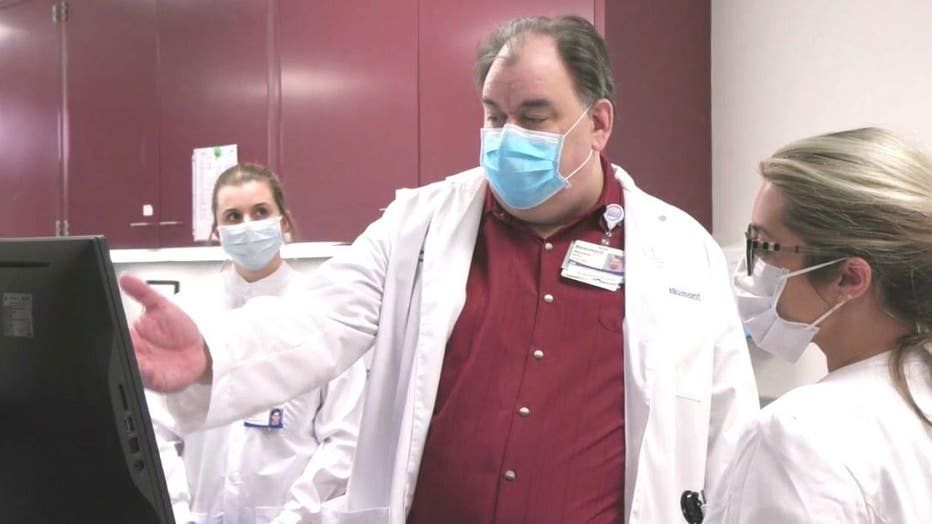New sepsis detection method using AI could lessen its deadly risk
FOX 2 (WJBK) - Anyone can get sepsis, but your risk goes up if you're old or young, hospitalized, or have a weak immune system. Now the goal is to get this new tool called the sepsis ImmunoScore distributed to hospitals.
"I talk to my dad on the phone every single morning of my life," said Jay Towers in 2017.
It's 2017 and like many, FOX 2's Jay Towers has never thought about sepsis until he's suddenly praying for his dad to survive it.
"I came home, and I was in a lot of pain, I wasn't right," his dad said Ed said. "And the next morning, I got up to use the restroom - and I couldn't even make it there."
"I'm at work and I get a call from my mom and she is calling 911 - and to hear that your dad is on the bathroom floor, and saying he feels like he's dying - I mean, that's not my dad. My dad is a tough guy - that's just not him."
Ed had gone into the hospital for heart surgery, but then his whole body shut down.
"Being helpless is a terrible feeling, because you want to do everything and you can't," Towers said. "And that was really hard. Because that wasn't even just a day of that, it was like four days of that."
Sepsis is the body's overreaction to an infection. It can happen to anyone and when it's severe, a lack of blood flow can quickly lead to fatal organ failure.
Thanks to antibiotics and a lot of medical intervention, Ed was able to survive severe sepsis and make it home in time to celebrate Christmas. Some call it miraculous.
"We never thought he was going to make it through that night - how he did, I can't even tell you," said Cheryl, Jay's mom. "He was at the lowest of low."
It's estimated every 20 seconds someone in the United States is diagnosed with the condition. For Neal Gaberdiel, it took weeks to diagnose.
"Elevated heart rate, low blood pressure, absolute fatigue," he said.
"We expected to be in hospital two days," said Nicole, his wife. "And we were still there 10 days later."
"When you're sort of at the end of it, when you are at your worst - it's easy to diagnose, but it is hard to treat," said Dr. Matthew Sims. "But when you are early in it, it is easy to treat but it is hard to diagnose - because the signs and symptoms can be very subtle."
That's hopefully changing. Sims, the head of infectious disease research at Corewell Health was part of a pilot program testing new AI software that can actually quickly see through those subtle symptoms and get doctors a sepsis diagnosis in one hour.
"It's a software product, it's AI-based, and it takes a bunch of vital signs, lab results that are drawn normally, information out of the medical record," he said. "And then specific labs that are part of the test. It puts them all together and predicts whether or not a person has sepsis. And it is better than anything else out there."
Neal, like Ed, was put on antibiotics and is now recovering from his hip replacement, infection and sepsis. And like Ed, he wants to share his story to help others.
"I am feeling good, and the whole reason that I am here today is because I really don't want anybody to go through what I went through," he said. "If there is a possibility to have a test identify and get everybody on the same page, with early treatment, that would be ideal. I mean in and out of the hospital over the course of a month, to get the proper treatment or in front of the proper person that can treat it, nobody should have to go through that."
Anyone can get sepsis, but your risk goes up if you are old or very young, hospitalized or have a weak immune system.
Now the goal is to get this new tool called the Sepsis Immuno Score to be distributed to hospitals everywhere. Jay's dad Ed, by the way, continues to do really well. Jay has been recognized for raising awareness about sepsis.

Dr, Matthew Sims, Corewell Health East

